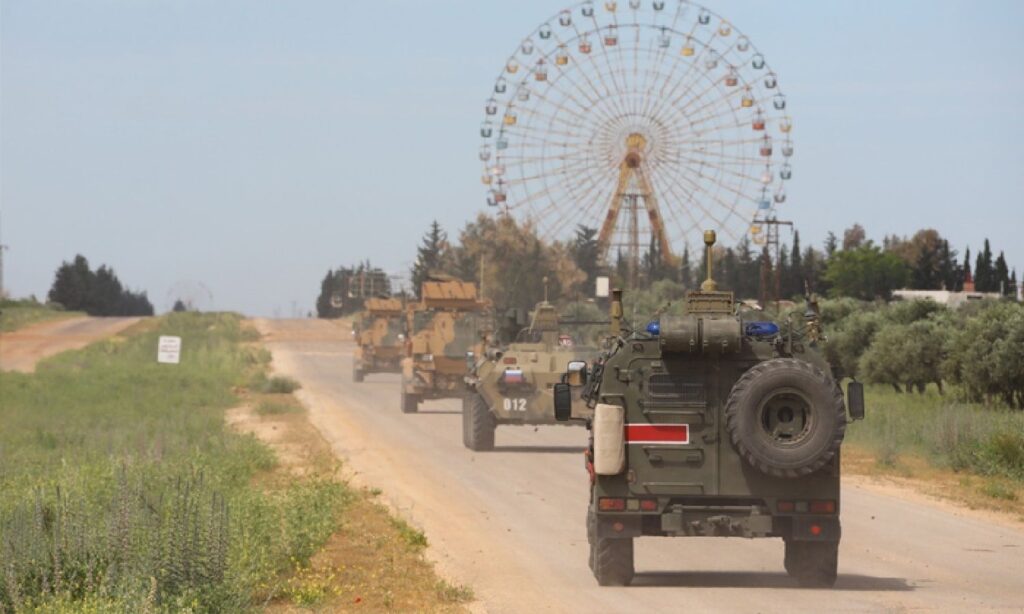Turkey and Russia conducted talks through their defense ministries aiming to resume joint patrols on the M4 international highway, which passes through areas controlled by the Syrian opposition.
According to the Turkish Radio and Television Corporation (TRT) on Thursday, July 25, citing unnamed sources from the Turkish Ministry of Defense, the Turkish and Russian defense ministries are engaged in talks to resume joint patrols that were halted four years ago.
The sources added that “the Turkish armed forces are making the necessary efforts to ensure peace and tranquility in the region and will continue to do so in the future.”
The aim of reactivating the patrols is to ensure the safety of the M4 highway, and negotiations on this issue are still ongoing between Ankara and Moscow, according to TRT Arabic.
The Russian Ministry of Defense has not commented on the information, as is typical for Russia, while the Russian news agency (TASS) merely relayed the information from Turkey’s TRT.
As for Hayat Tahrir al-Sham (HTS), which controls most parts of Idlib province, part of western and southern rural Aleppo, and small parts of Hama and Latakia, the patrols are considered unacceptable.
In a previous conversation with Enab Baladi, the media office of Tahrir al-Sham stated that the group’s position on this issue remains unchanged.
They added that “the group considers any Russian military presence on Syrian soil as occupying forces that have supported a regime that killed and displaced millions of Syrians.”
The HTS affirmed that resisting this “occupation” (Russia) is legitimate by all means, and that the group assesses such issues based on “Islamic law and the principles of the revolution” to ensure its continued pursuit of its full objectives.
The reopening of the highway is tied to understandings between Russia and Turkey according to the terms of the Moscow Agreement, signed on March 5, 2020, between Russian President Vladimir Putin and his Turkish counterpart, Recep Tayyip Erdoğan, which stipulates:
- A ceasefire along the confrontation line between the regime and the opposition.
- Establishing a security corridor six kilometers north and six kilometers south of the main international highway in Idlib (M4), linking cities under the Syrian regime’s control in Aleppo and Latakia.
- Deploying joint Russian-Turkish patrols along the M4 highway starting from March 15 of the same year.
After the agreement, some joint patrols were conducted but were met with civilian protests and sit-ins on the road to prevent their passage. The patrols also faced attacks by unknown assailants and factions that claimed responsibility for some operations.
After several joint patrols, which included targets that caused damage and cessation, resulting in injuries among Turks and Russians, Turkey conducted some patrols without Russia, which abstained from participation, citing “the inability of the Turks to secure the road.”

